Eating raw eggs: protein in eggs, safety concerns, nutrition, and most nutrient dense eggs.
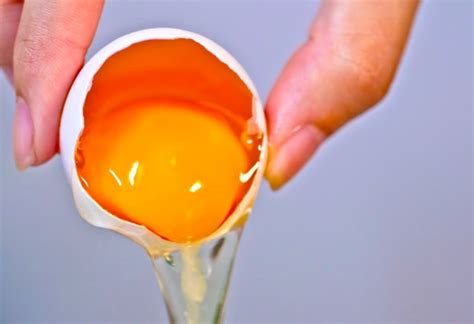
Are you afraid of eating raw eggs? I was terrified the very first time I ate a raw egg, but I got over that fear when nothing bad happened.
The protein in eggs are found in both the egg yolk and in the egg whites.
I personally believe the protein in eggs are more digestible when you eat them raw, which is how I prefer to eat my eggs.
Raw eggs were commonly eaten in the past: what's the big deal?
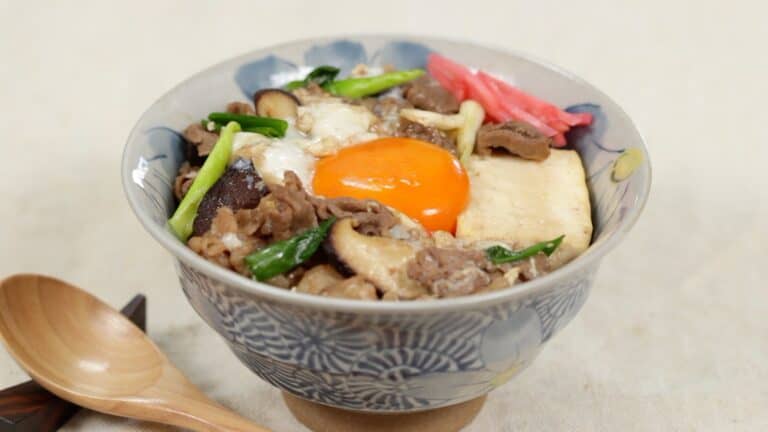
In the past, cracking a raw egg into a dish like Sukiyaki
was not seen as any type of problem. My father did this all the time when I was a young girl.
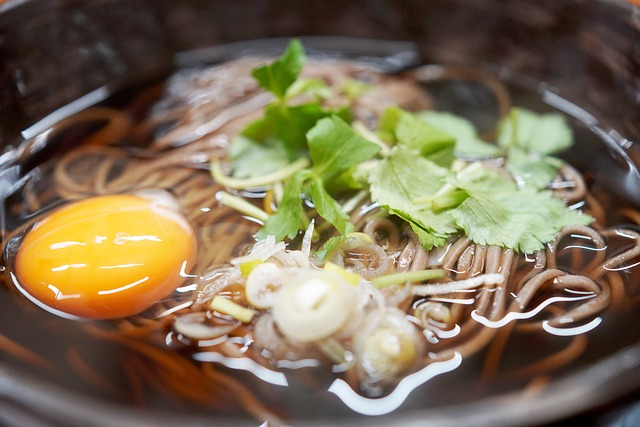
Raw eggs were also added to Asian soups to add more texture as well as nutrition.
Let's not forget mayonnaise, Caesar salads, Tiramisu, and Eggnog were traditionally made with raw eggs!
The big question is who decided to make it a problem?
Protein in eggs: egg white protein called avidin a big concern for some.
It has been said that an egg white protein called avidin can block the nutrient biotin under certain circumstances.
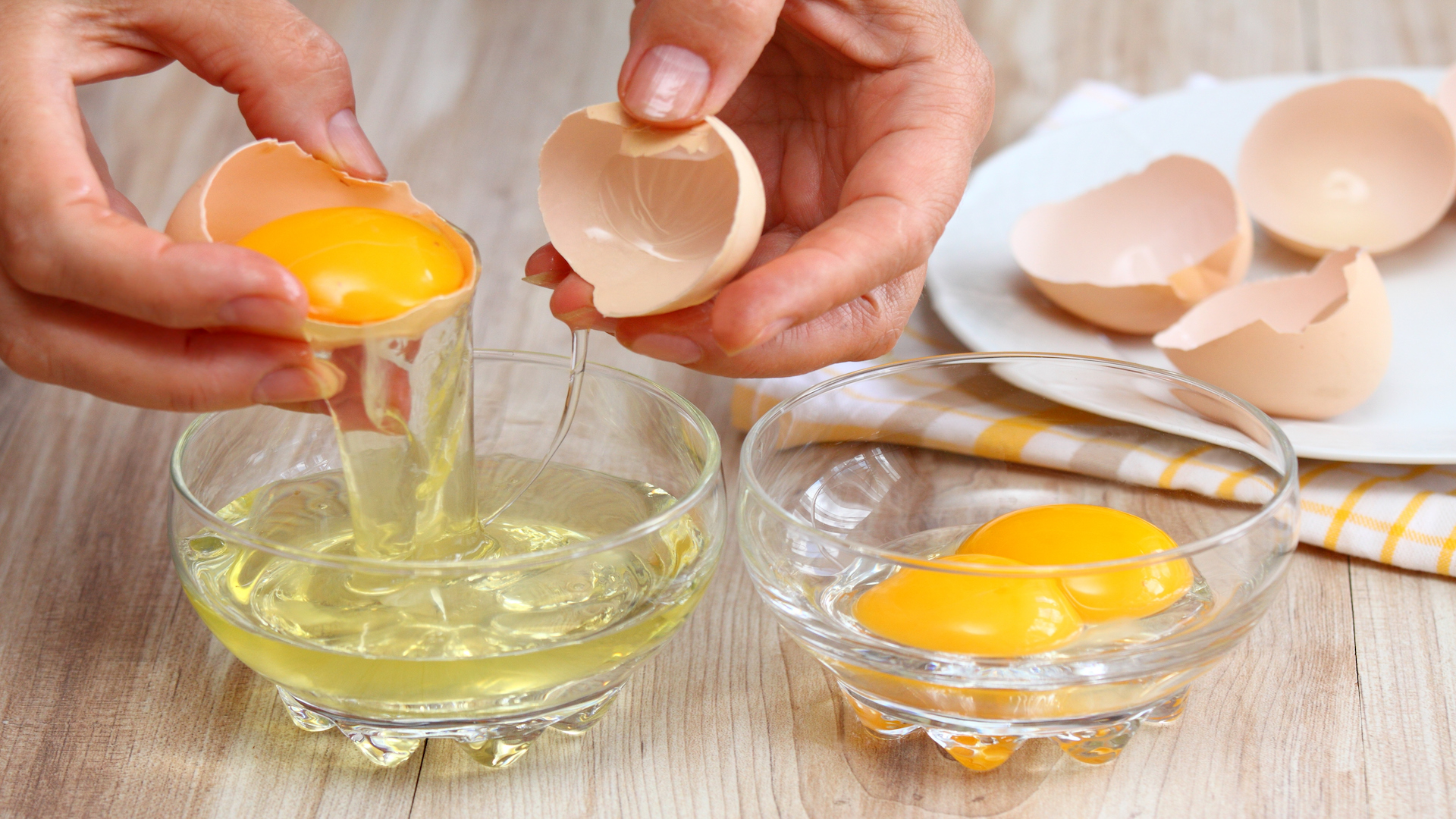
What is biotin? Biotin is either vitamin B7 or B8 (I've seen both) and helps with the synthesis of fatty acids, amino acids, and glucose.
Researchers have identified a specific protein in raw egg whites called avidin which has the ability to bind together with biotin and prevent its absorption.
However, in practice a biotin deficiency may only occur with a prolonged consumption of an exceptionally large number of raw egg whites.
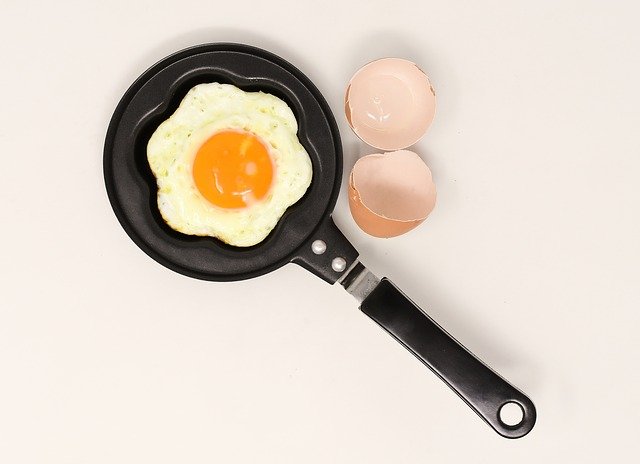
It has been said that cooking your eggs will deactivate avidin and prevent this issue.
Eating your eggs sunny side up is another way of deactivating avidin in the egg white protein while not damaging all of the fragile proteins in the egg yolk.
Still other scientists have identified the egg yolk as one of the most dense sources of biotin in your diet!
It's thought that as long as you eat the biotin rich egg yolk along with the egg white, there will probably be no risk of a biotin deficiency.
BTW, many believe all the protein in eggs will be damaged by the cooking process and there will be more health benefits from eating raw eggs.
Safety concerns: is eating raw eggs safe?
I've been eating raw eggs for decades and if anything raw eggs has helped me to be stronger - you know like it did for Sylvester Stallone in the movie "Rocky".
I usually have two raw eggs to start my day. I swallow one at a time in a 4 oz. mason jar, but you can do it like Rocky.

I've heard the odds are less than 1 in 30,000 chance of contracting salmonella poisoning and that's from commercial eggs. There's even less risk in organic eggs and pastured eggs.
Eating raw eggs has many benefits because raw eggs contain essential nutrients for your brain, nerves, glands and hormones.
The protein in eggs will contain sulfur amino acids that help to keep you young and eggs are a great source of glutathione.
Both of these nutrients are often destroyed when you cook your eggs!
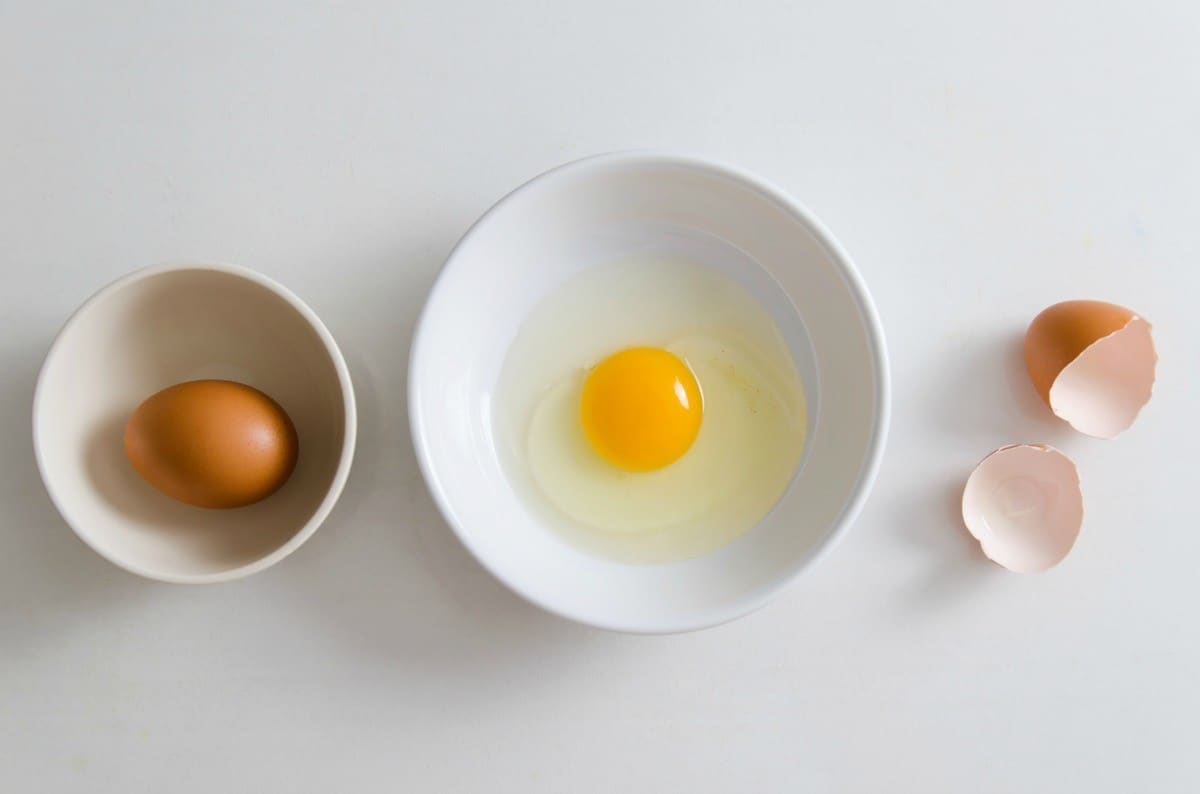
It's important to get a supply of fresh eggs to avoid bad bacteria which may become an issue with eggs that aren't fresh.
One way to check for freshness is to put the egg up to your nose after you crack it open. If the egg smells off or funny, don't consume it.
Nutrition in eggs: they are a nutritional powerhouse!
Do you remember this marketing line, "the incredible, edible egg" from a commercial back in the day? That's because eggs are truly a nutritional powerhouse despite their size.
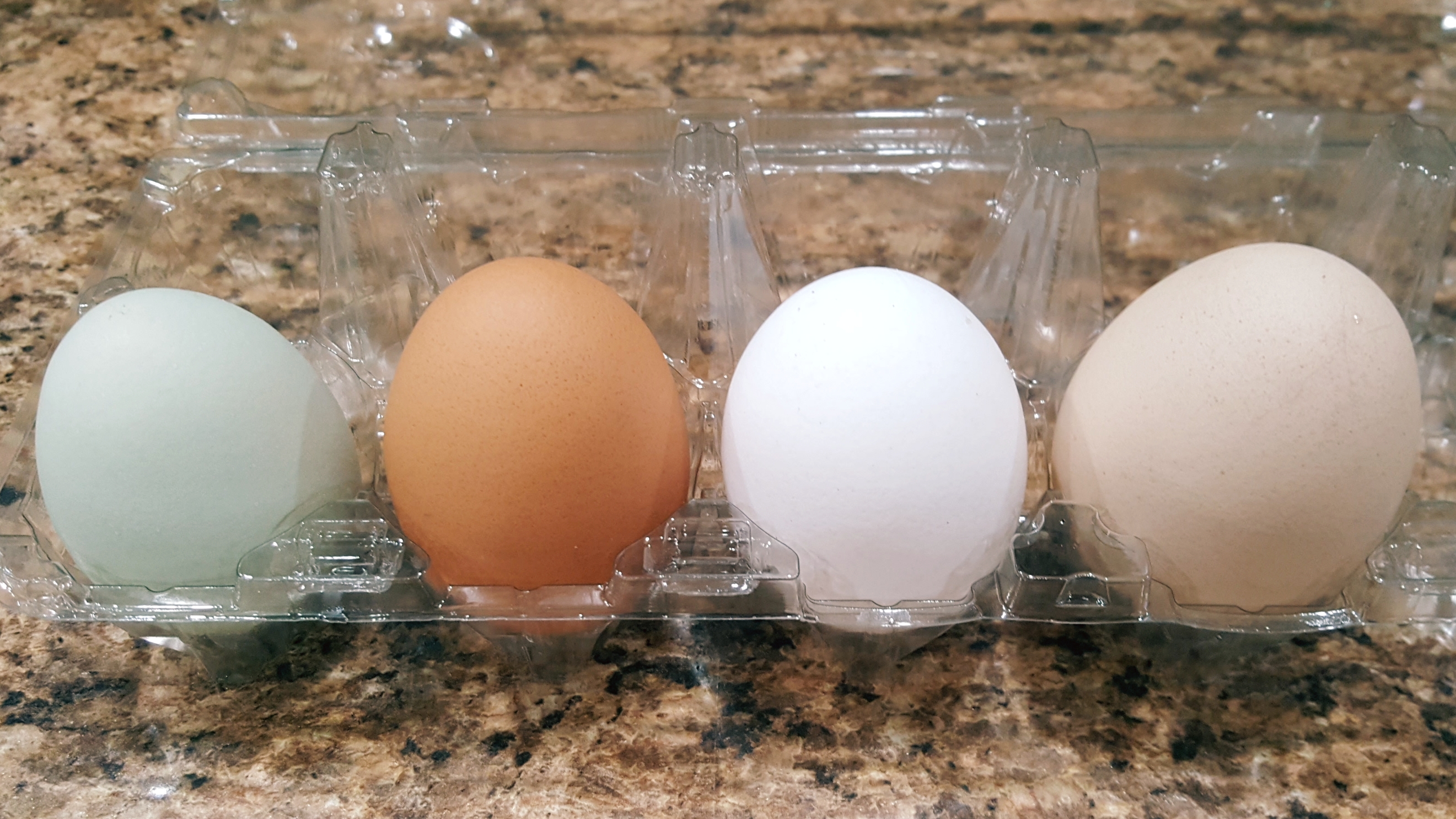
Eggs have 5 to 8 grams of protein per egg (depending on size) and almost all of the protein in eggs will get used by your body.
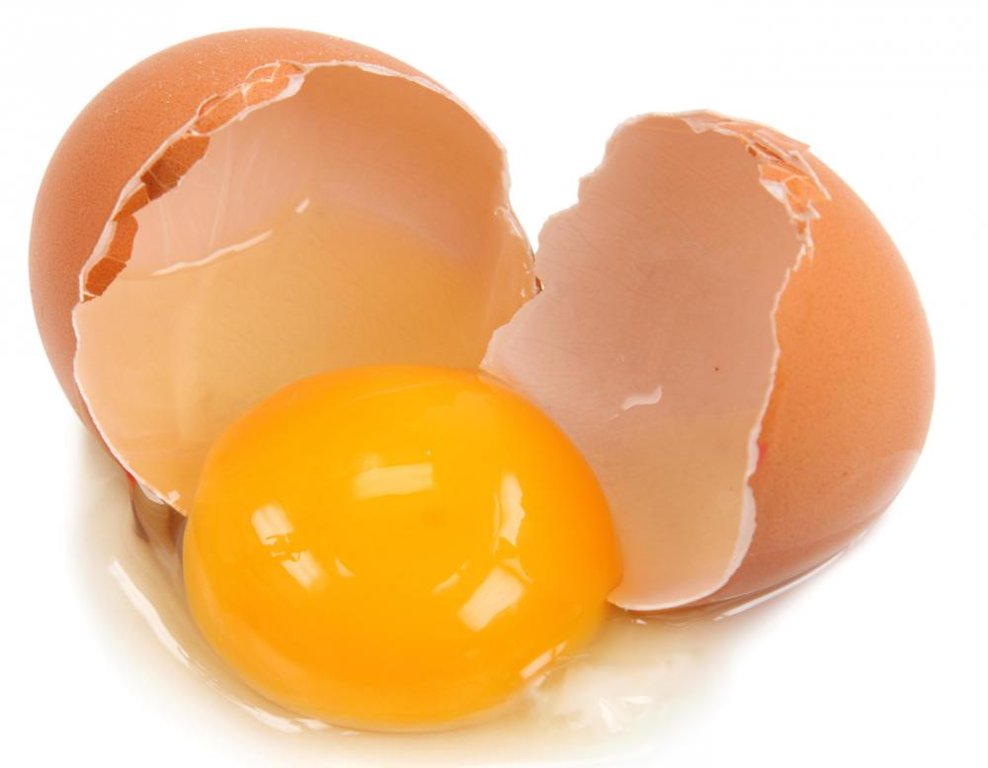
According to an article published on March 22, 2019, "The Golden Egg: Nutritional Value, Bioactivities, and Emerging Benefits for Human Health".
"Nearly 1000 different proteins have been identified in a chicken egg, including the egg shell."
Eggs have minerals such as magnesium, calcium, potassium, sodium, phosphorous, selenium, iron, zinc, manganese, copper, and sulfur.
Eggs contain almost all B vitamins like B1 or thiamine, B2 or riboflavin, B3 or niacin, B5, B6, biotin, B9 or folate, and B12 or cobalamin.
Eggs can be a good source of essential vitamins A, D, K, and E. Egg yolks are one of the foods that can actually contain vitamin D.
Eggs are also a source of choline which is a vital nutrient that helps your liver, eyes, and brain function.

Did you know that many bodybuilders incorporate raw eggs into their diets on a regular basis because of its nutritional content?
Eggs truly are an incredible food and the protein in eggs contain all the essential amino acids in the exact proportions required for the optimal maintenance of your muscle tissues.
Eggs have a good amount of cholesterol which your body does need by the way. However, eggs also contain lecithin which markedly aids with the metabolism of cholesterol.
The fat found in eggs is about 1/3 saturated fat and the rest is mainly monounsaturated fat with a small percentage of polyunsaturated fat.
Refrigerating your eggs: it affects the nutrient density of your eggs.
I have learned that the temperature in our refrigerators are too cold for the proteins in eggs.
Temperatures that are too cold or too hot will start to destroy some of the nutrients and proteins in your eggs. This means that you will not get as much benefits from the consumption of eggs.

I keep my eggs on a counter that's out of direct sunlight - just like the Europeans do with their eggs.
If you want to get more nutrition from consuming eggs, keep eggs at the right temperature.
It really does seem to matter!
I always look for organic and pasture raised eggs - preferably straight from a good quality farm.
Did you know that washing chicken eggs will remove its natural barrier which is called the bloom?

The bloom helps to act as a barrier from outside contaminants and will help to keep your eggs fresher for a longer period of time.
Actually for several months if your eggs are stored in a cool area.
If you want to clean freshly laid eggs, you can always remove the dirt, etc. with a dry paper towel or soft cloth to keep this barrier intact.
Most nutrient dense eggs: are from healthy chickens living outdoors in the sunshine!
Eating raw eggs from healthy chickens which were raised correctly is what I only recommend. Chickens will thrive in the right environment and with the correct type of foods.
Did you know that chickens need to be outdoors to get an adequate amount of vitamin D from the sunshine?

Chickens will also be healthier when they can get their protein from natural sources like bugs and worms - not soy! Also, chickens are not vegetarians!
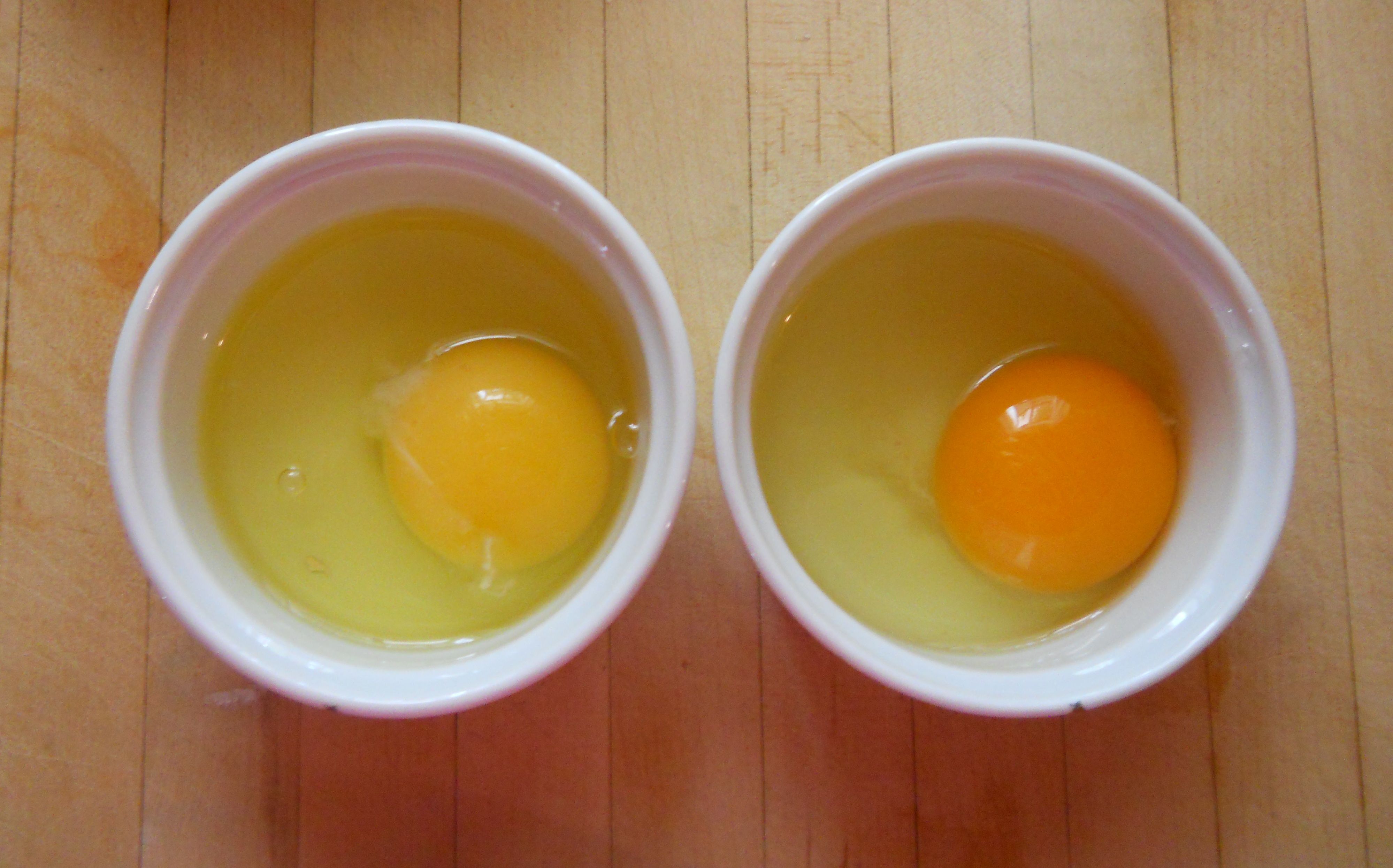
The most nutrient dense eggs will have more nutrients like vitamins A, D, K, and E along with Omega 3 fatty acids like DHA.
The more orange the egg yolk - the more vitamin A or nutrient dense the egg should be.
Eggs that come from chickens that were raised "indoors", fed soy, or toxic feed should be avoided!
Types of eggs available: what's the difference?
Pastured eggs - the best type of eggs almost always come from chickens that were allowed to forage on nutrient dense pastures.
This also allows chickens to get an adequate amount of sunshine!

Chickens are able to eat insects, lizards, seeds, worms, legumes, and green plants which will produce much healthier eggs.
Pastured eggs are richer in nutrients like vitamins, antioxidants, amino acids, choline, and minerals. These eggs will also have a better ratio of omega 3s to omega 6.
Pastured eggs will be better for your health than most other types of eggs.
Fertilized eggs - will contain both the male and female genetic material.
Some say the nutritional profile of a fertilized egg is about the same as an unfertilized egg.
However, some studies show that fertilized eggs are higher in omega 3s, fat-soluble vitamins, antioxidants, and minerals.
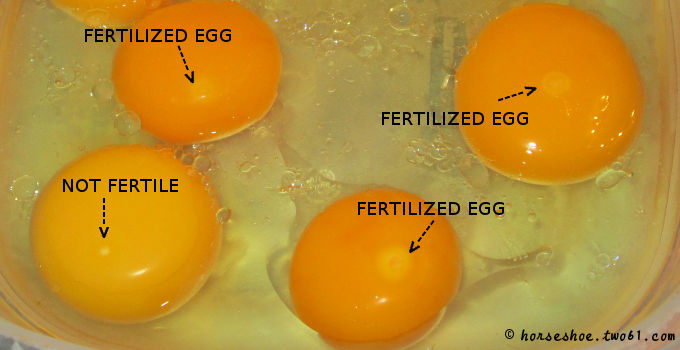
If an egg is fertile, you'll see a distinctive and faint "bulls-eye" shape on the egg yolk. Fertilized eggs are perfectly safe to consume and won't develop into a chick as long as the eggs are gathered regularly and are not incubated.
Organic eggs - are from chickens that have been fed a 100% organic diet and no animal by-products.
Their feed should not contain synthetic fertilizers, pesticides, or GMOs which are genetically modified organisms.

No added hormones are allowed and antibiotics are only allowed when there is proof of an infection or disease.
Organic chickens will have access to outdoor spaces, but the quality and extent of that will vary. There may be legislation that requires them to have access to pastures in the near future.
Free range eggs - these types of eggs come from chickens that're suppose to have access to the outdoors which is very important to the nutrition of eggs.
Although, just because they have access to the outdoors doesn't necessarily mean that these chickens are foraging on grass or pasture.
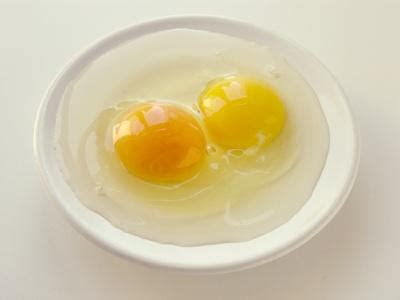
You will be able to tell by the color of their egg yolks. The more orange the egg yolk - the more likely the eggs are from chickens roaming freely in nature.
Cage free eggs - means that the hens that laid the eggs were not raised and confined to caged housing systems.
- Which is how the majority of conventional or commercial laying hens are raised in the United States.
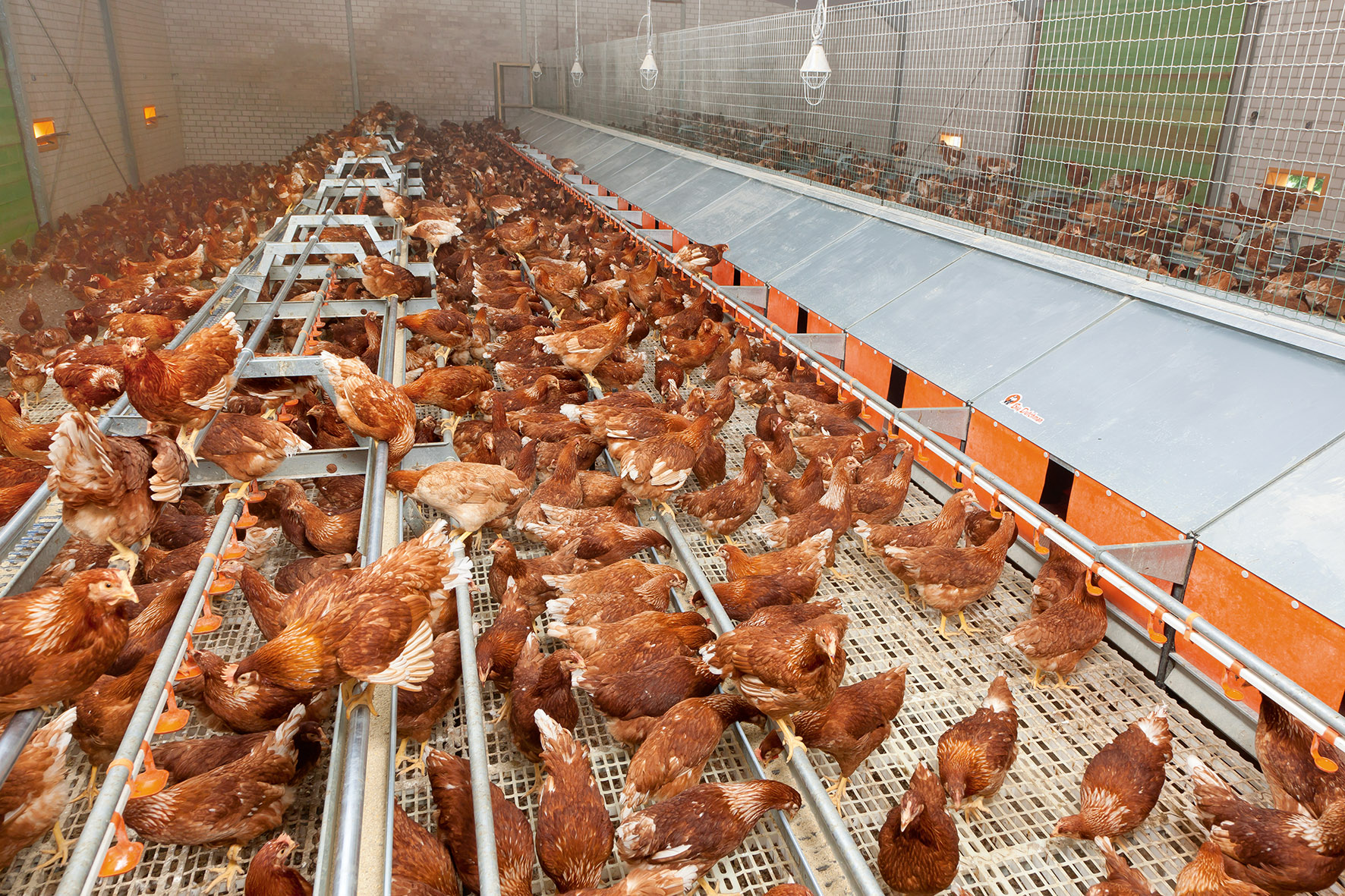
Cage free chickens are usually raised in large hen houses and often in very cramped conditions. These chickens most likely do not have access to the outdoors and are living under artificial light.
Vegetarian-fed eggs - these types of eggs are laid by hens that are only fed a vegetarian diet which goes against a chicken's true nature because they are omnivores!

Many commercial chicken farms advertise that their eggs are coming from vegetarian-fed chickens that I equate to living in chicken prison.
Usually their egg yolks will be more pale in color or anemic looking.
If your eating raw eggs, please stay away from commercially raised chicken eggs!
In conclusion, the most nutrient dense eggs will most likely come from chickens that are raised with roosters that produce fertilized eggs, are organically-fed, and foraging on green regenerative pastures.
These days, I also prefer to buy eggs that are soy and corn free for a better nutritional profile.
Be aware: there are unscrupulous companies that label commercially raised eggs as being organic or pasture raised. They feed these chickens marigold pellets or something that changes the egg yolks to a darker color to fool you.
All I can say is, Know Your Farmer!
- Home
- Eating Raw Foods
- Eating Raw Eggs


